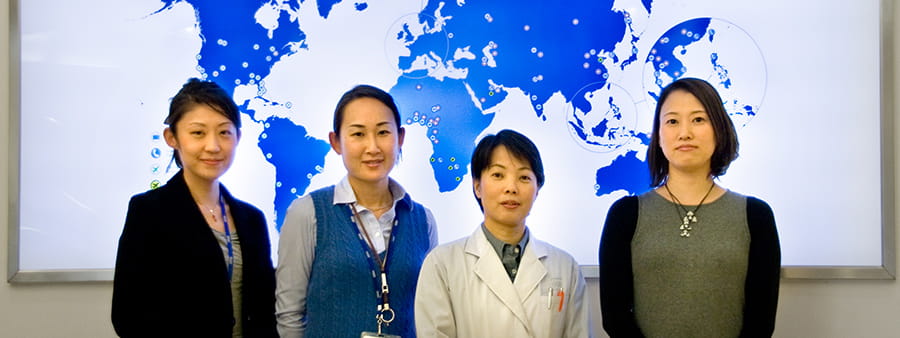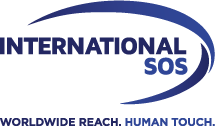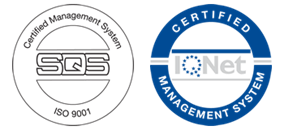Air Pollution in China
Published: August 2015
A BREATH OF FRESH AIR?
In the last 30 years China has undergone rapid economic rebirth and industrial transformation. This process has led to rising prosperity and urban expansion and created a burgeoning middle class. China’s emergence as a major player on the world stage – powered by mass industrialisation and energy production - has also been accompanied by less welcome developments: Rising levels of smog and air pollution and an increase in respiratory disease, leading to heightened health risks for the hundreds of thousands of expats and business travellers in China and local communities.

Having operated in China since 1989, International SOS has witnessed these changes first-hand. International SOS’ operational teams have seen a marked increase in requests relating to the country’s air pollution levels, particularly since the World Health Organisation (WHO) classified outdoor air pollution 'carcinogenic to humans' in 2013. With a strong network of five clinics, three offices and over 600 staff across the country, International SOS is playing a leading role in providing specific advice and support to its clients and their employees on this and other major health risks.
As ever, International SOS specialist teams are working 24/7 to keep people safe and business moving.
HOW WE HELP
In response to increasing concern about air pollution among client organisations, International SOS issue regular medical alerts and conduct proactive client outreach, including webinars and face-to-face training and information sessions. In addition, there is a dedicated International SOS air pollution website with a strong focus on China and Asia.
International SOS has relocated its Shanghai office to new, larger premises in Yangpu: a fast-developing commercial district gaining popularity among expats and multinationals. Here, state-of-the-art facilities are helping the company’s teams deliver vital health messaging and coordinate response activities.
Dr Gordon Peters, International SOS’ Regional Medical Director for North Asia, has worked in Asia on and off since 1990. He explains the company’s priorities and approach: “We care about the health and wellbeing of our clients and education and communication are critical. For us it starts with crucial pre-travel advice; then, once the client has arrived, we are in constant contact to update them on local situations, give advice and answer questions.”
In terms of preventive measures, Dr Peters and his team recommend common-sense behaviours that can minimise the impact of air pollution, such as avoiding excess exercise on hazardous days, not taking long bike rides and limiting exposure when pollution levels are high.
“Through simple, sensible actions and behaviour modification, people can dramatically mitigate the risks. There’s a lot of panic and media attention surrounding this issue, and people often feel they have to rush out and buy masks and air purifiers. We don’t actively recommend these devices, as there’s not yet any hard scientific evidence to back up their efficacy, but we do offer some guidance if people are determined they want this.”
Additionally, International SOS advises client organisations on their Duty of Care to expat employees in relation to air pollution, and helps formulate and validate corporate plans for dealing with this issue. As air pollution particularly affects those considered medically ‘at risk’, International SOS recommends that clients’ rigorously screen their employees before sending them on assignment.
“Those with previous respiratory complications, or those with children who are predisposed, will be vulnerable if exposed to high air pollution levels,” says Dr Peters. “If companies have assignees with severe asthma or conditions such as early onset chronic obstructive pulmonary disease (COPD), we strongly recommend they reconsider their options.”
SHANGHAI FACILITIES
With double the available floor space as the previous Shanghai office, International SOS’ new Yangpu site can accommodate over 100 employees. It is fitted out with state-of-the-art technology, back-office facilities and conference rooms – all designed to help International SOS look after the health, wellbeing and safety of its members.
“The new office has enabled us to ramp up our services, particularly from a client engagement and communications perspective,” says Dr Tim Foggin, International SOS’ Deputy Medical Director of Network Partnerships in China. “We’re able to coordinate our medical information and host seminars for corporate clients. Being able to bring clients here is hugely beneficial, and so much more impactful than using hotel function rooms. We give talks on air quality, disseminate materials and provide advice on prevention. And the clients get to see our operations up close, which helps to reassure them they’re in good hands.”
The new Shanghai office is equipped to provide communications and assistance on a multiplicity of health issues, ranging from food and water quality to gastroenteritis, road accidents and rabies. As Dr Foggin explains: Air pollution is a concern, but it’s one of several key health issues we work to prevent and treat in Shanghai. For example, outbreaks like the H7N9 (bird flu) virus are a recurrent issue, so it’s crucial that our clients be on alert and are ready to react if they need to. We run webinars and provide pre-emptive information services, covering pandemic plans or crisis management – whatever we can do to mitigate risk further down the line.”

From its specialist hub in Yangpu, the Shanghai team makes use of every available communication channel to deliver timely and relevant information to its members. Through a series of daily email alerts, live-streaming and tailored mobile apps, they help keep people abreast of developing situations and signpost routes to further support via the Assistance Centres.
“Whether it’s routine medical advice or emergency guidance, we’re available 24/7 to provide the support and help people require,” says Dr Foggin. “What’s more, with multiple languages spoken on site, there’s no fear of critical information getting lost in translation.”
And so whatever the smog and visibility levels in China, International SOS’ clients have a clear view now of the actions and information they need to discharge their Duty of Care to staff.
WHAT IS AIR POLLUTION?
Air pollution consists of unwanted gases, dust and particles known as ‘pollutants’ that are potentially harmful to humans. Natural sources of air pollution include sand, wind-blown dust and smoke from fires, while man-made air pollutants arise from industrial and vehicle emissions and certain agricultural processes. Air pollution in China is reflected primarily in the amount of particulate matter (PM) that is found in the air, the subscript (10 or 2.5) referring to the size in microns of the particles. This measured amount of PM is converted to an Air Quality Index (AQI) which is widely reported. In recent years, the PM (and associated AQI) levels in China’s Northern provinces have risen dramatically, creating dense peasouper smog the likes of which has not been seen in Europe for many decades. “Today in Paris and London”, says Dr Gordon Peters, “an AQI of 50-70 is a bad day; yet in Beijing, where I work, an AQI of 120 is a beautiful day.”
And whereas the World Health Organization recommends a safe level of 25 micrograms of PM2.5 per cubic metre, in Beijing in February 2014 this figure hit 505. “On some days”, says Dr Peters, “I can look out of my apartment and see the windows of the hotel 500 metres away. On other days I can’t even see the hotel.”
The short-term health effects of air pollution include headaches, eye irritation, coughing, wheezing and shortness of breath, with more extreme cases resulting in cardiovascular disease, lung cancer and low birth weight. It can of course prove fatal, and the World Health Organization estimates that over two million deaths are caused by air pollution globally each year.
For more information on air pollution, go to the dedicated International SOS air quality site: site.internationalsos.com/airpollution/










